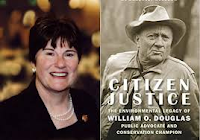For the latest in civility, see Bed's published opinion here:
Civility is not about etiquette. This is not a matter of bad manners. Incivility slows things down, it costs people money – money they were counting on their lawyers to help them save. And it contravenes the Legislature’s directive that “all parties shall cooperate in bringing the action to trial[.]” (Code Civ. Proc., § 583.130.)
Incivility is the adult equivalent of schoolyard bullying and we will not keep looking the other way when attorneys practice like this. They will be called out and immortalized in the California Appellate Reports.
For more civility lessons, see also this unpub from 2/2 here at fn. 8: "[Appellant] also likens the trial court to a Holocaust denier. This type of gross and baseless hyperbole is unfounded, disrespectful, offensive, and unethical."
Also, the Wall St. Journal has How an Ordinary Guy Took a $3,000 Case to the Supreme Court
- In 1893, the court ruled that for tax purposes, tomatoes actually are vegetables. In 1924’s “U.S. vs. 95 Barrels (More or Less) of Alleged Apple Cider Vinegar,” the nine justices took up whether there was a meaningful difference between vinegars made from dried apples instead of fresh. Turns out there was.
- Despite its seemingly low stakes, Harrow’s case has real implications for ordinary people’s access to the courts, say his advocates and those filing briefs in support.

















